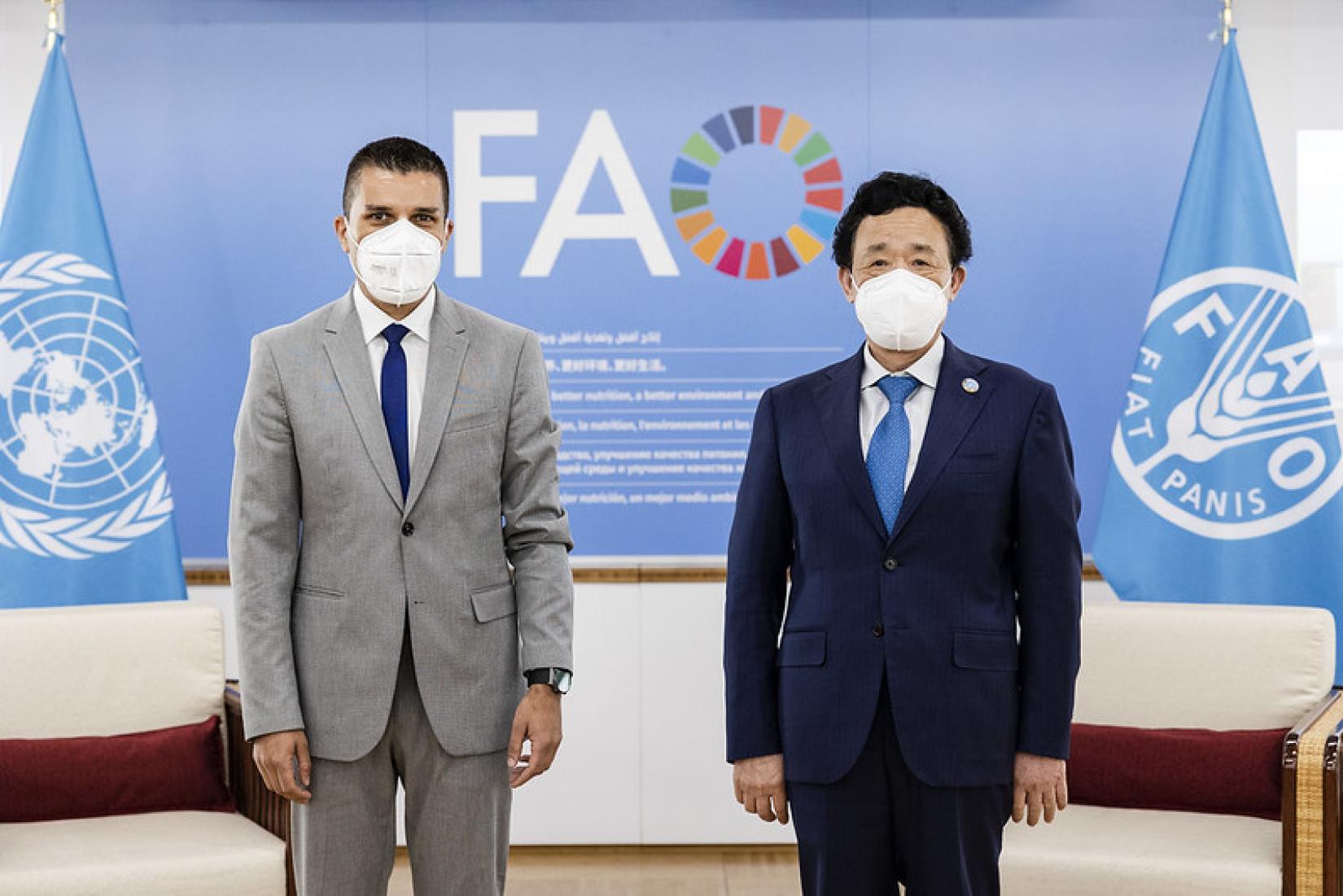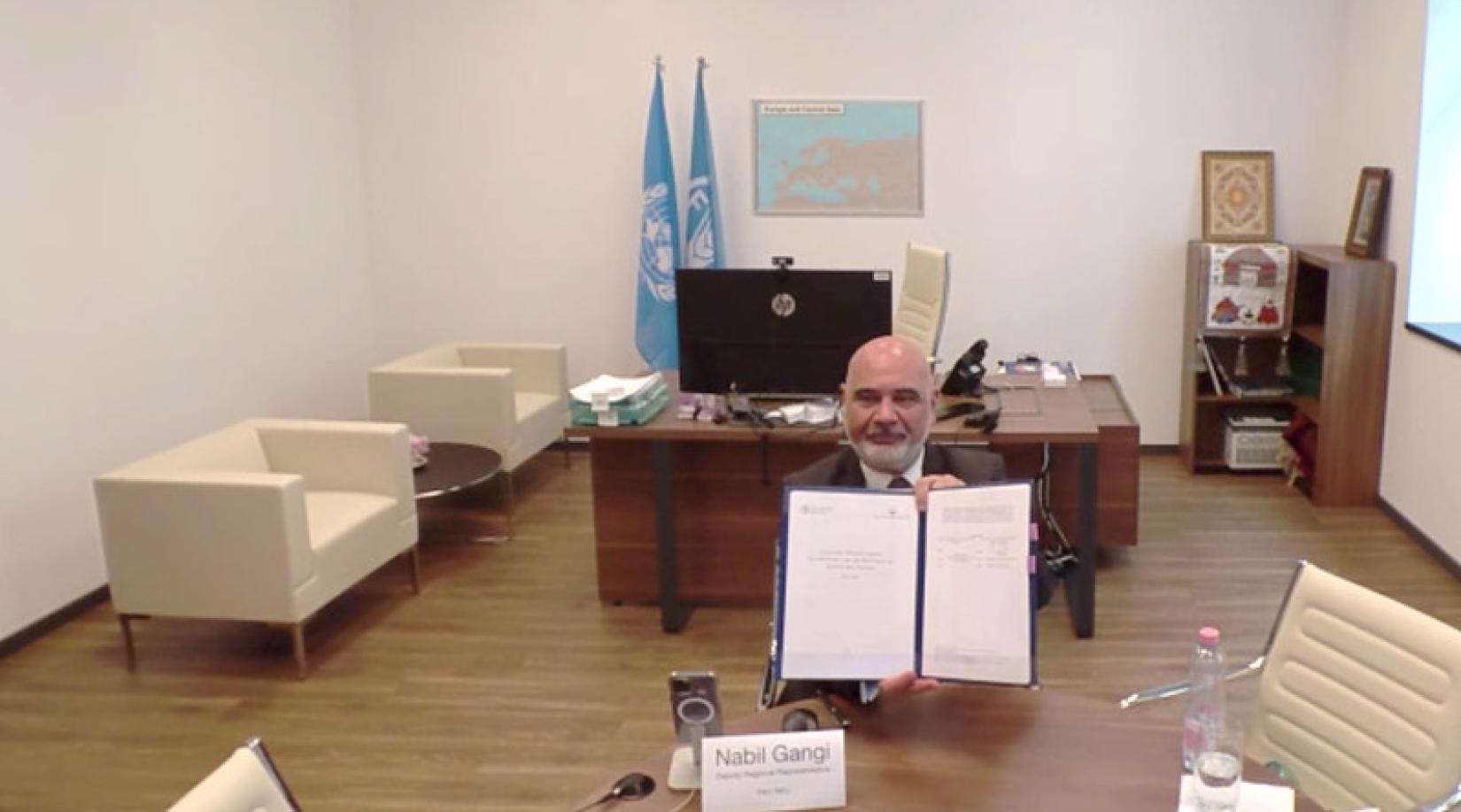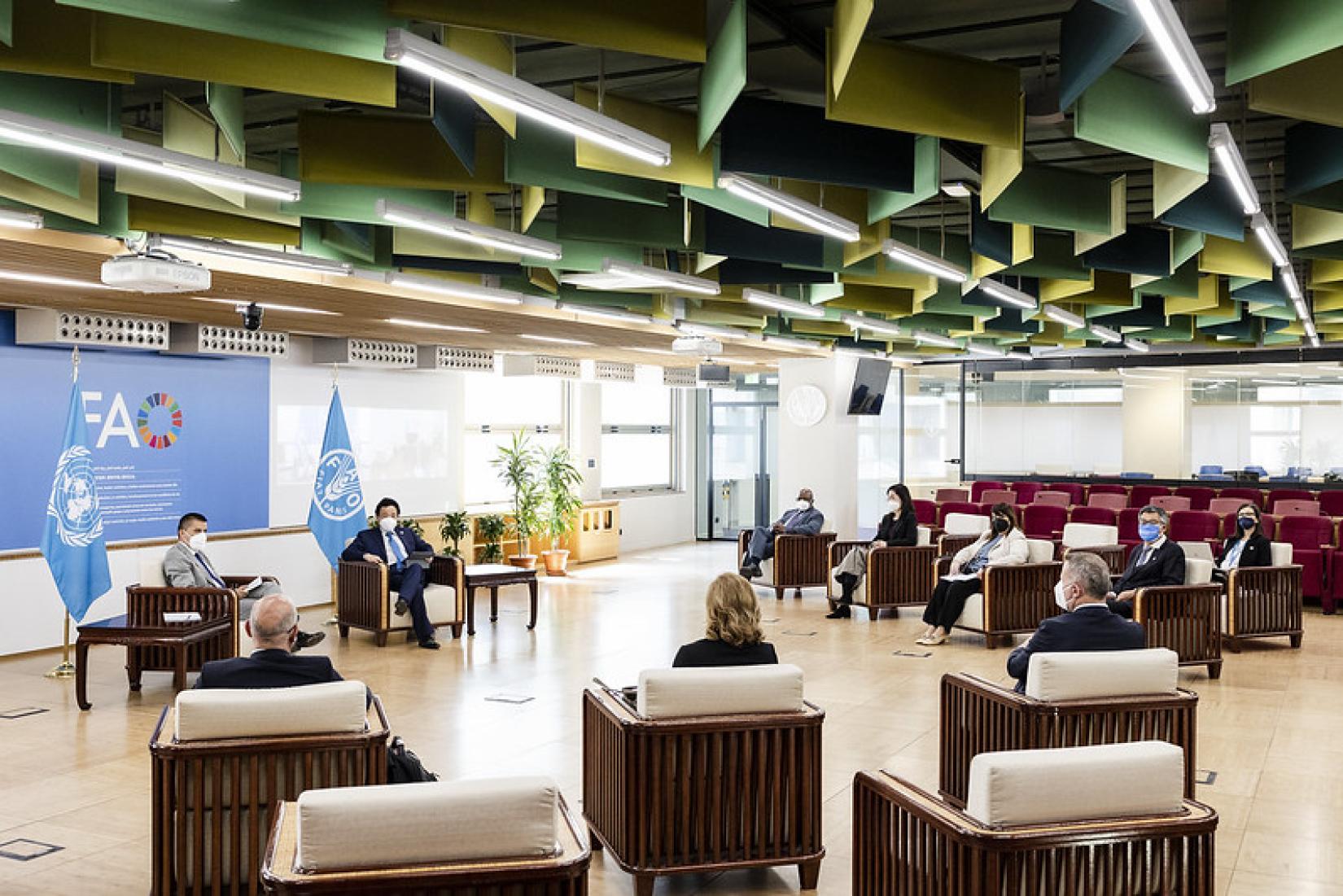New FAO–North Macedonia programming framework for a more competitive, sustainable, and resilient rural economy
29 April 2022
28 April 2022 – A new five-year Country Programming Framework (CPF) was signed today by FAO and the Republic of North Macedonia, with both parties committing to continue the joint efforts in achieving a more competitive and resilient rural economy fostering job creation and inclusive, green growth.

Priorities of FAO’s new CPF for North Macedonia (2021–2025) are consistent with the priorities of the Government, the country's Strategy for Agriculture and Rural Development 2021–2027, and the United Nations Sustainable Development Cooperation Framework 2021–2025, with a view to facilitate food system transformation and progressive alignment of agriculture and the rural economy with European Union (EU) standards and the Sustainable Development Goals.
The accord was signed by Nabil Gangi, FAO Deputy Regional Representative, and Ljupco Nikolovski, Minister of Agriculture, Forestry and Water Economy of North Macedonia during their meeting today with FAO Director-General Qu Dongyu.

“This framework is a continuation of the long-standing partnership between FAO and North Macedonia and our joint efforts to advance agricultural development, empower smallholders and family farms, and invest in a sustainable and food-secure future of Macedonian people,” said Nabil Gangi, FAO Deputy Regional Representative.

"We are ready to continue the activities and the excellent cooperation with FAO through which the Ministry, the Government and the citizens of our country see the benefits directly on the ground. I will only mention the success we have achieved with the ongoing agricultural land consolidation projects under the National Land Consolidation Programme, through which we achieved historic progress in improving the structure of agricultural land, which has ultimately contributed to reducing costs and increasing farmers’ incomes. The cooperation with FAO is abundant, there are many joint projects that are of great interest to the country," said Minister Nikolovski.
Agriculture is one of the key sectors of the Macedonian economy and a critical employer in rural areas, accounting for 12 percent of the gross domestic product and some 22 percent of total employment. Still, the sector’s development is hampered by many challenges, including, but not limited to, agricultural land fragmentation, limited access to productive assets (such as infrastructure, land, water, energy, knowledge, and financial services), weak value chains, and high vulnerability to climate change.
Having this in mind, FAO is ready to support North Macedonia in two main areas; building a stronger rural economy aligned with the EU standards, with focus on small farms and women farmers, and enhancing climate action, natural resources, and disaster risk management.
More specifically, FAO will support the Government of North Macedonia in formulating effective policies and enabling investments for rural transformation, improving agricultural land structures and land market mobility, modernizing production, strengthening value chains, and ensuring climate-smart, resilient agriculture.
Support to the Ministry of Agriculture, Forestry and Water Economy will continue to implement the ongoing land consolidation projects under the National Land Consolidation Programme and further scale up the programme at national level, as well as other land market instruments.

Through knowledge sharing and other means, FAO will help the Ministry and other relevant partners in formulating policy measures for improved advisory, veterinary, and phytosanitary services, as well as in the European Union approximation efforts in the areas of animal health management and food safety and quality, to meet the national needs and global challenges in the food value chain.
Under the second priority of the programme, FAO will support the country’s climate action efforts. This includes sustainable management of natural resources (land, water, forestry, and biodiversity), building climate resilience of agricultural production, and reducing disaster risks in agriculture. Boosting the climate resilience of smallholder farmers in many ways – including more efficient input use, high-quality data for decision-making, climate-smart agriculture, and expansion of irrigation systems – will be a key area in this regard.
‘’Achieving these results is possible with strong Government commitment and support from resource partners as well as with FAO’s contribution through its Technical Cooperation Programme (TCP). The technical assistance provided through TCP projects plays an important role in addressing the critical technical gaps of the Government, but also in having a catalytic effect for a sustainable impact and further investments towards the achievement of the Sustainable Development Goals defined in the CPF’’, says Goran Stavrik, FAO Programme Officer (TCP). North Macedonia relies on FAO’s global experience and know-how as an accredited entity to the Green Climate Fund (GCF), Adaptation Fund (AF), and Global Environment Facility (GEF) in accessing environmental climate finance to support the country's national climate change adaptation and mitigation priorities while also meeting the country's global climate commitments.
LINKS
- In rural North Macedonia, FAO helps improve sustainable and resilient development
- Enhancing rice production in North Macedonia through land consolidation
- Young Macedonian artist wins World Food Day poster contest honoring food heroes
- Land consolidation is the missing link for farmers in North Macedonia
- North Macedonia receives continued support for “greening”







